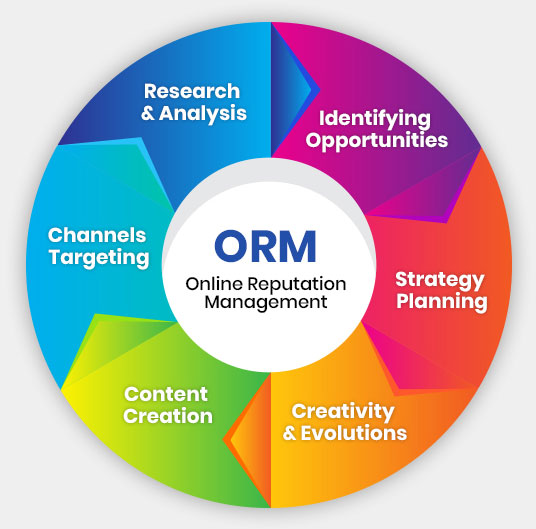Reputation Management Mastery: Methods for Effective Brand Name Control
Reputation Management Mastery: Methods for Effective Brand Name Control
Blog Article
From Situation to Chance: Leveraging Reputation Administration in Times of Hardship
In today's interconnected and fast-paced globe, businesses and individuals deal with the consistent threat of situations and misfortunes that can potentially damage their hard-earned track record. Nevertheless, amidst the turmoil exists a possibility - an opportunity to not only prosper but survive in the face of difficulty. Online reputation administration plays an essential duty in browsing these difficult times, ensuring that the damages is reduced and the possibility for development is optimized. In this discussion, we will certainly check out the art of leveraging online reputation monitoring during times of situation, offering insights and techniques that can change a difficult situation right into a tipping rock for success. Prepare to uncover the tricks behind transforming dilemma into possibility, as we look into study and take a look at the power of social networks in shaping online reputation.
Comprehending Online Reputation Administration
Understanding online reputation management is essential for services and people seeking to keep a favorable public image and alleviate potential damage in times of difficulty. Reputation management includes the techniques and tactics used to shape, maintain, and protect an individual's or organization's reputation (Reputation Management). It includes proactively monitoring what is being said regarding the individual or organization, both online and offline, and reacting properly to any kind of unfavorable or destructive information
In today's electronic age, where information spreads out swiftly and can have a long-term influence, credibility management has become also much more crucial. Social media platforms, on the internet testimonial sites, and news outlets can promptly intensify any kind of adverse attention or objection, possibly triggering substantial harm to a person's or company's reputation. By recognizing reputation monitoring, businesses and people can successfully navigate these difficulties and proactively deal with any type of concerns that might arise.
Key parts of reputation management include checking on-line assesses and discusses, involving with clients or stakeholders, attending to unfavorable feedback or criticism in a professional and timely fashion, and proactively taking care of online accounts and material. In addition, services and individuals must make every effort to construct a strong track record by providing on assurances, supplying excellent customer care, and engaging in ethical methods.
Identifying Adversities and Dilemma Scenarios

To determine these difficulties and dilemma situations, organizations require to establish a durable tracking and early caution system. This includes proactively keeping an eye on typical media, social media platforms, on-line forums, and various other relevant sources for any negative conversations or potential hazards associated with the organization. Reputation Management. By remaining proactive and attentive, organizations can swiftly identify and respond to emerging concerns, preventing them from spiraling out of control
In addition, companies need to also perform routine risk assessments to recognize potential vulnerabilities and powerlessness in their procedures. This allows them to establish backup plans and methods to resolve situations successfully when they do happen. By being prepared and aggressive in recognizing hardships and dilemma circumstances, organizations can better shield their reputation, preserve stakeholder count on, and eventually turn adversity into opportunity.
Structure a Dilemma Reaction Method
Developing an efficient situation feedback method is critical for companies to efficiently browse with difficulty and safeguard their credibility. In times of situation, companies have to be prepared to react rapidly and effectively to alleviate the influence on their stakeholders and keep public depend on. Constructing a dilemma response technique involves several essential actions.
First of all, organizations need to establish a dilemma management team made up of essential individuals from different divisions. This team needs to be accountable for executing the situation and developing response plan. They need to have a clear understanding of the company's worths, purposes, and key stakeholders.
Second of all, companies must perform an extensive danger assessment to determine potential situations that could occur and assess their possible influence. This entails analyzing inner and outside aspects find more that could lead to a crisis, such as operational interruptions, economic concerns, or reputational dangers.
Following, organizations should develop a communication strategy that outlines how they will certainly interact with their stakeholders during a crisis. This strategy ought to consist of consistent and clear messaging, along with channels and systems to get to different target markets.
Furthermore, companies ought to develop procedures for tracking and evaluating the situation response technique. This includes on a regular basis reviewing and updating the strategy to guarantee its performance and making necessary changes based on lessons discovered from previous crises.

Utilizing Social Media Site in Reputation Administration
Social media has actually ended up being an essential device for organizations in managing their track record during times of difficulty. With the surge of social networking systems such as Facebook, Twitter, and Instagram, organizations now have the opportunity to straight involve with their stakeholders and resolve any problems or concerns that may arise.
Throughout times of situation, social media allows companies to swiftly disseminate information, offer updates, and interact their side of the tale. By actively joining social media sites discussions, companies can keep track of public view, address misinformation, and show openness and liability.
Among the essential benefits of utilizing social networks in online reputation administration is the capability to reach a huge target market in real-time - Reputation Management. Via social media sites platforms, companies can engage with stakeholders from throughout the world, no matter of geographical borders. This allows them to not only manage their credibility locally however likewise on a global scale
An additional benefit of using social media sites is the interactive nature of these platforms. Organizations can proactively pay attention to their audience, react to their worries, and demonstrate a desire to deal with problems. This degree of interaction aids construct count on and reliability, which are important for reputation administration.
Nevertheless, it is very important for companies to approach social media with caution. Mistakes or unacceptable reactions can rapidly intensify a dilemma and more damages the organization's online reputation. Therefore, it is necessary find out here now for organizations to have a well-defined social media sites method in place, with clear standards on exactly how to deal with situation scenarios.
Transforming Crisis Into Chance: Case Researches
A number of organizations have successfully turned crises into possibilities by properly handling their reputation and implementing strategic activities. These study highlight the significance of proactive track record monitoring during times of difficulty.
One such case study is the Tylenol dilemma in 1982. When seven individuals passed away after eating cyanide-laced Tylenol capsules, Johnson & Johnson took instant action to safeguard its credibility. The business swiftly recalled 31 million bottles of Tylenol, reestablished the item with tamper-proof product packaging, and applied a clear interaction method. By prioritizing customer safety and security and freely resolving the crisis, Johnson & Johnson not just gained back consumer trust fund but also established new sector criteria for item security. you could try these out
One more remarkable example is the Domino's Pizza crisis in 2009. In reaction, Domino's right away apologized and introduced a detailed online campaign to deal with the situation.
These study demonstrate the significance of speedy activity, openness, and effective interaction in turning situations into chances. By efficiently handling their online reputation and applying calculated activities, organizations can not only mitigate the unfavorable effects of a dilemma however likewise emerge more powerful and a lot more durable.
Verdict
Leveraging social media as a device in reputation management can better enhance companies' capacity to deal with crises and interact with stakeholders. Via strategic and aggressive credibility management, crises can be transformed right into opportunities for development and enhancement.
By being prepared and aggressive in determining difficulties and situation circumstances, companies can much better protect their online reputation, keep stakeholder trust, and eventually transform adversity right into opportunity.
Establishing a reliable situation reaction approach is critical for companies to effectively browse via difficulty and secure their online reputation. Missteps or inappropriate feedbacks can swiftly intensify a dilemma and further damage the company's reputation. Leveraging social media as a tool in credibility management can additionally improve organizations' capability to address crises and interact with stakeholders. Via calculated and proactive reputation monitoring, crises can be turned into opportunities for growth and improvement.
Report this page